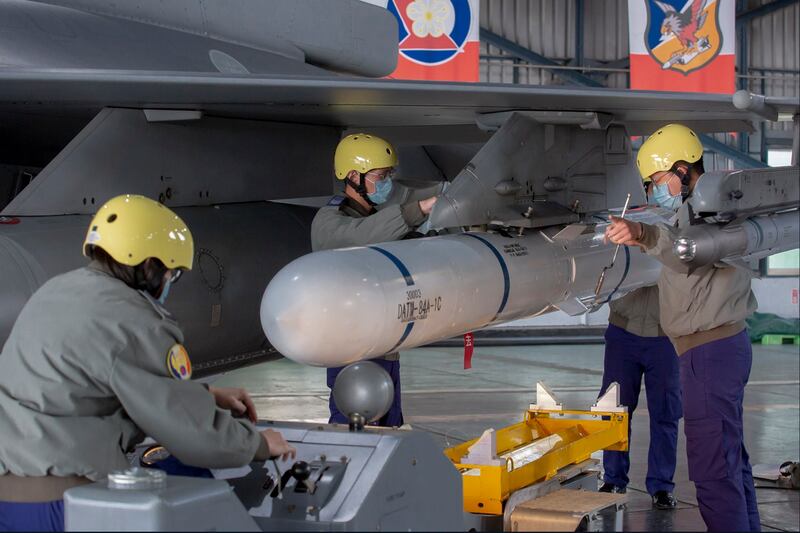Beijing plans to expand its military spending this year by 7.2% – the highest rate since 2019 – amid rising tensions with the United States in the Indo-Pacific and over Taiwan.
It was announced at the opening of the annual gathering of China’s National People’s Congress that the military budget this year would reach about U.S.$225 billion.
It is still much smaller than the U.S. defense expenditure which stood at U.S.$801 billion in 2021, according to the Stockholm International Peace Research Institute.
Outgoing premier Li Keqiang, in probably his final government work report, said that “external attempts to suppress and contain China are escalating.”
The army should “carry out military operations, boost combat preparedness and enhance military capabilities so as to accomplish the tasks entrusted to them by the Party and the people,” Li said.
This year’s growth rate of 7.2% is only slightly higher than last year’s rate of 7.1% but it still follows an upward trend.
Meanwhile the projected growth rate of China’s economy is set at just around in 2023.
COVID-19 and other domestic and international factors had affected the country’s economy “beyond our expectations,” said the premier, who is expected to step down at the Congress.
In 2022, China’s gross domestic product (GDP) grew just 3%, far below the government’s 5.5% target.
Focus on Taiwan
The People's Liberation Army (PLA) will celebrate its centenary in 2027. Its goals include the modernization of national defense and the armed forces by 2035, and the transformation of the armed forces into world-class forces by the mid-21st century.
China has boosted its military expenditure over the last two decades, from just U.S.$33 billion in 2003 to the current level.
"The increase in defense spending is needed for meeting the complex security challenges and for China to fulfill its responsibilities as a major country,” Wang Chao, a National People's Congress spokesperson, told reporters in Beijing.
“China's defense spending, as a share of GDP, has stayed basically stable for many years and it is lower than the world average. An increase is appropriate and reasonable," Wang said.
The U.S. Congress in December approved an 8% increase in the defense budget to U.S.$858 billion.

Taiwan remains one of the main points of tension between Beijing and Washington, with the latter continuing to provide support and arms sales to the democratic island that China vows to “reunify.”
Just last week, the U.S. State Department approved a U.S.$619 million deal to sell missiles to Taiwan.
Since 2019, the U.S. has approved more than U.S.$20 billion in sales of military aircraft and weapons to Taipei in order to help the island build a strong deterrence against threats from China.
"Our assessment is … that deterrence is real, deterrence is strong, and we're doing everything we can to make sure it stays that way tomorrow and into the future," said Ely Ratner, Assistant Secretary of Defense for Indo-Pacific Security Affairs at an event last week.
Speaking to an audience at Hudson Institute, a conservative think tank in Washington D.C., Ratner said that China “is the only country with the capability and the intent in essentially overthrowing the international order as we know it in a way that runs directly counter to vital U.S. national interests.”
The U.S. is working with allies and partners “to ensure that that kind of coercion and aggression doesn't succeed,” the senior official said.
A Chinese invasion of Taiwan will not take place by the end of the decade, he argued, because “the costs of aggression remain unacceptably high to Beijing.”

Meanwhile a U.S. Senator has warned that if Taiwan falls to China, it may cost the global economy U.S.$2.5 trillion per year.
Senator Dan Sullivan was speaking at another event at the Hudson Institute titled "A Test of Will: Why Taiwan Matters" on Thursday.
“We all know Taiwan dominates the production of the world's most advanced semiconductors,” he said, “In fact, Taiwan is home to 92% of the most advanced semiconductor production in the world.”
“Imagine what that would do with regard to the U.S. and global economy if the most advanced chips in the world were not only taken offline, but possibly in the control of one of our biggest adversaries,” the Republican senator said, adding that many of the U.S. weapon systems, F-35 aircraft, radars and advanced missile defense capabilities rely on these chips.
